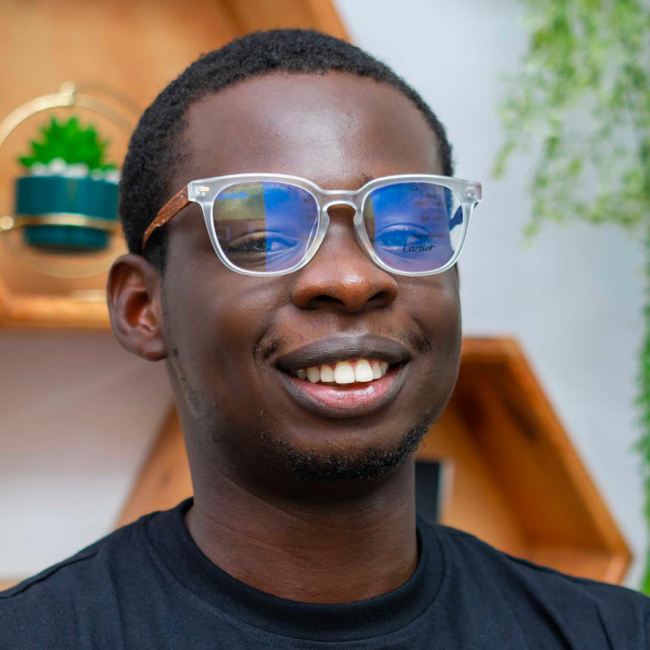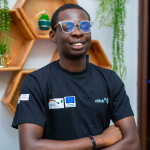The Capacity Accelerator Network (CAN) is building a workforce of purpose-driven data and AI practitioners to unlock the power of data for social impact. With experience in both industry and academia, Fagoroye Ayomide has collaborated with international organizations and research groups, contributing to projects aimed at preserving linguistic diversity and improving AI accessibility. Ayomide is a CAN Africa Low-Resource Language Fellow.
In this rapidly evolving AI landscape, what was the “aha moment” when you realized the opportunity and the necessity to train AI on low-resource languages to unlock and accelerate Africa’s AI potential?
My “aha” moment came while searching for a text-to-speech api and finding out that Yoruba was still not supported in the Google Cloud Text-to-Speech. With all of Google’s massive technology, it utterly failed in Yoruba. It became evident that language diversity in Africa was not just underrepresented but was essentially missing in mainstream AIs. I realized that we have to move quickly before we have a massive reservoir of cultures invisible to AI. The need became very evident. The opportunity for big tech to bridge this gap and support efforts to train AI on low-resource languages is both urgent and transformative. This is not just to save language heritage but to support inclusive innovation in healthcare, education, governance, and beyond. The future of Africa’s AI depends on language equity as a foundation, not an option.
When developing and training responsible AI for African and other low-resource language communities, practitioners must give priority to community-centered data collection, transparent use of models, and long-term benefit sharing.
Fagoroye Ayomide Product Development and Innovation Lead NitHub
How does your work with low-resource languages move the needle for data and AI for social impact work? What are some of the biggest challenges you have faced in doing so?
My focus is on developing ethically sourced and linguistically valid speech data for low-resource languages, specifically Yoruba and Hausa. This enables voice tools for different sectors (healthcare, education, citizenship engagement, etc), particularly in underserved communities. One of our most significant challenges is infrastructure. Low-resource languages often have no digitized data, no standard orthographies, and variable speaker representation. There are institutional challenges, such as under-resourced research and low levels of collaboration among technologists and linguists. However, by filling in the gaps, we empower the voices of the locals to shape AI as an instrument of inclusion.
What are the diverse, interdisciplinary skills that are required to do this work effectively? Which one surprised you the most?
Effective work in AI for low-resource languages demands a fusion of skills, which may include machine learning, computational linguistics, cultural anthropology, community organizing, trust building, and ethics. What surprised me the most was realizing the importance of trust building during interactions with language speakers , as co-creators and not as merely data providers , in ensuring quality data. It reminded me that the future of AI isn’t just about code and compute; it’s about the people. And unless we prioritize the people, our models will always remain incomplete.
What key responsible practices should AI practitioners prioritize when developing and training AI systems in African—or other low-resource languages?
When developing and training responsible AI for African and other low-resource language communities, practitioners must give priority to community-centered data collection, transparent use of models, and long-term benefit sharing. Practices such as participatory dataset design, multilingual documentation, and culturally sensitive model assessments must be adopted by practitioners. Some other guardrails include strict consent protocols and preventing models from perpetuating negative stereotypes. Trust from the community is a requirement. Without trust, communities will not cooperate, and the resulting data will be both ethically and technically imperfect. This trust is earned through respect, feedback loops, and respecting the rights of speakers as not merely data points but as rights-holders to the data.
Inclusive AI cannot be built in silos. Governments offer policy frameworks, technologists bring tools, NGOs offer a ground-level perspective, and communities provide lived experience.
Fagoroye Ayomide Product Development and Innovation Lead NitHub
What is the importance of cross-sector collaborations in building inclusive AI? What advice would you offer to people interested in this work?
Inclusive AI cannot be built in silos. Governments offer policy frameworks, technologists bring tools, NGOs offer a ground-level perspective, and communities provide lived experience. Cross-sector collaboration ensures that the development of AI systems is linguistically fair, culturally relevant, and scalable. My advice to aspiring AI equity advocates is that they should start locally, stay humble, and collaborate widely. They should learn from linguists, community elders, and social scientists. They should also prioritize impact over novelty and remember that language is identity. Working in AI language equity is not just a technical challenge, but a social justice mission. You must build for and with the communities you aim to serve.
“5 Minutes with” series
These articles share the stories of people around the world leveraging data and AI to drive impact.


